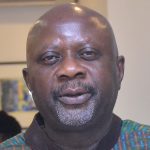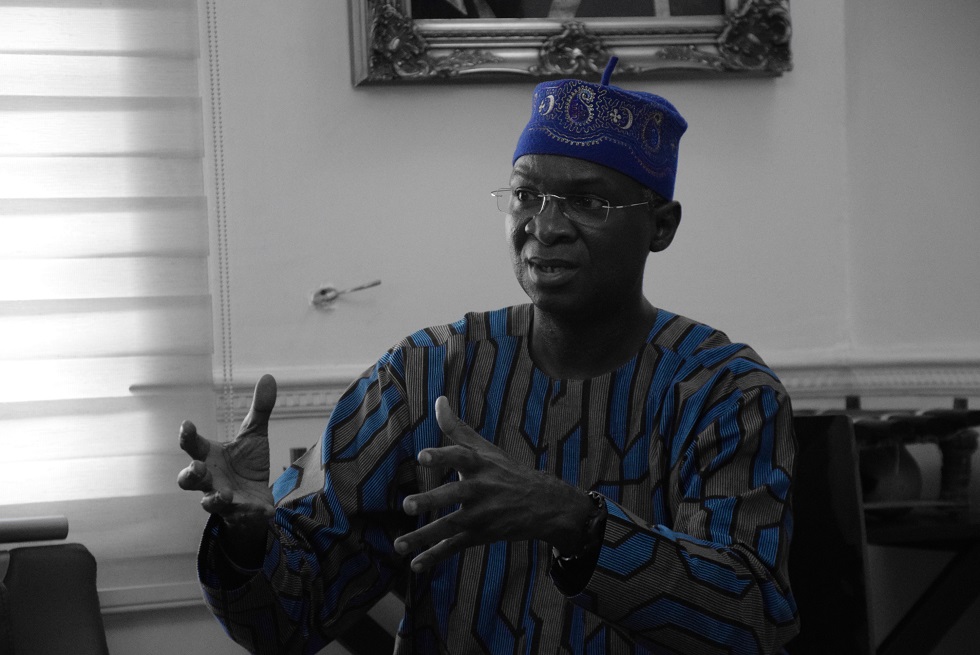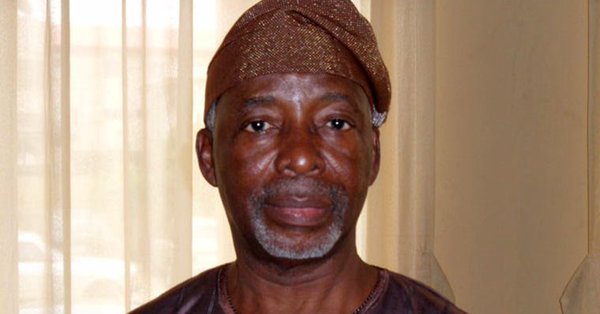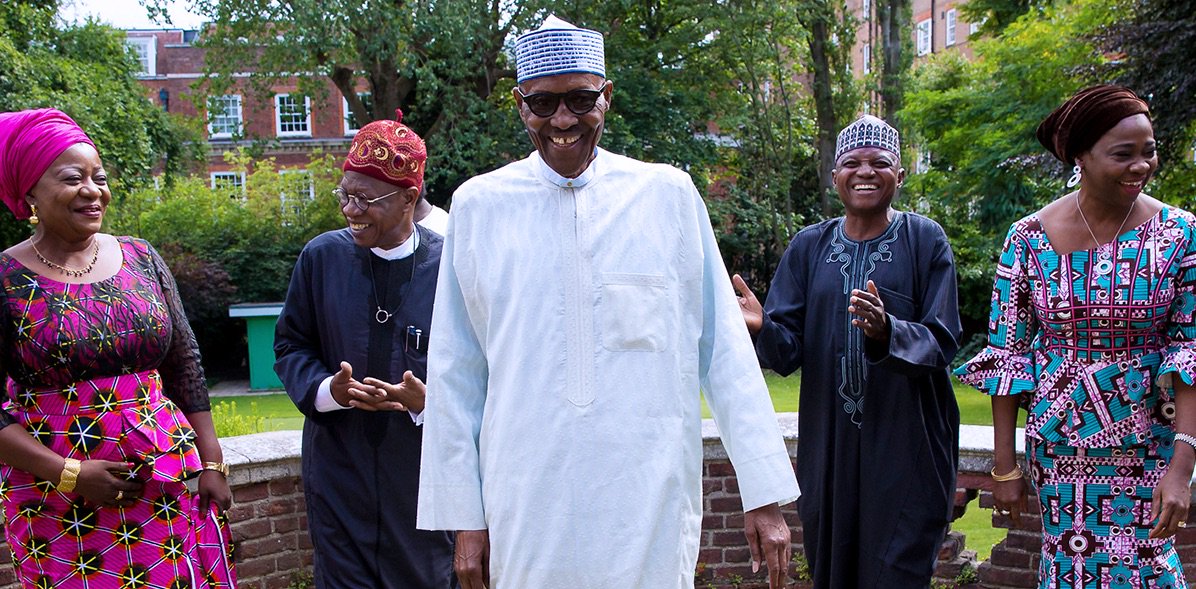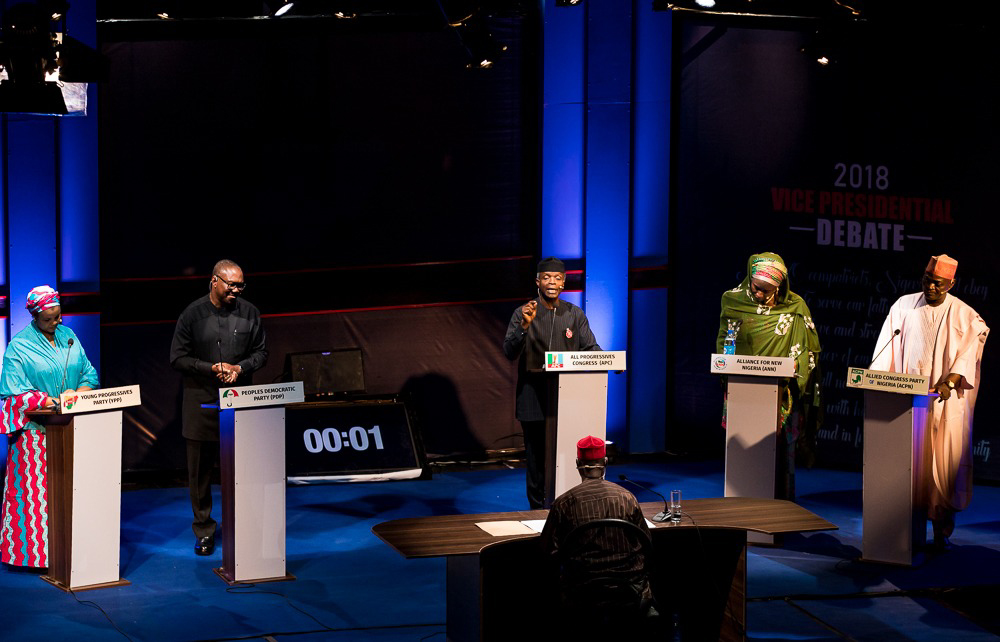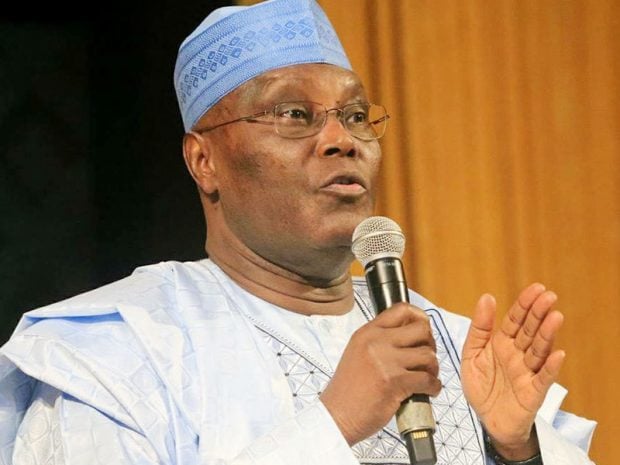A friend once described Nigerians as such atypical, hopelessly-hard-to-satisfy creation on the face of the earth that just when you thought it was time to roll out the carpet and beat the drums for you for having satisfied their yearnings and demands, you see them carrying placards and beating war drums again asking for yet another set of yearnings and demands as they are no longer interested in nor appreciative of what you just did for them.
While it should be admitted that this characterization is an extreme generalization, it, nonetheless speaks to a people whose high-octane restlessness oftentimes deadens their reasoning faculties, which drives them into misplacing their priorities. Having gone through the most horrifying collective experience since the beginning of the fourth republic, most especially in the Jonathan administration, one would have thought that Nigerians would still be at the barricade with placards and war drums even after more than three years since the last government left, asking for the blood of key elements in that government.
One would have thought, for instance, that Nigerians would still be demanding cogent explanations, if not prosecutions of those officials who sold an important utility service provider like power distribution to briefcase companies with absolutely no knowledge of the power sector to such people like Tunde Ayeni, a wheeler dealer who, as the Chairman of Skye (now Polaris) Bank, defrauded that financial institution of amounts that ran into hundreds of billions of Naira with which he used—-and probably as a front—-to buy Yola and Ibadan Discos. Or why they thought nothing of it that Emeka Offor and IBB bought Enugu Disco and Shiroro Power Plant respectively despite the fact that both failed to meet the payment deadline of 75% of the bid prices of these entities.
There’s probably no better way to explain a people’s penchant for leaving the real substances that had impacted, and continues to negatively rubbish their lives but prefers chasing the shadows than to ascribe the “Stockholm Syndrome” to their collective mindset. The “Stockholm Syndrome,” according to Wikipedia, “is a condition that causes hostages to develop psychological alliance with their captors as a survival strategy during captivity.” It went further to explain that “these alliances, resulting from a bond formed between captor and captives during intimate time spent together, are generally considered irrational in light of the danger or risk endured by the victims.”
Advertisement
So, when Mr. Babatunde Raji Fashola (SAN), a demonstrably high performing, say-it-like-it-is Honourable Minister of Power, Works and Housing that Nigeria ever had in its history responded, among other questions, that it is no longer the responsibility of the federal government to provide neighbourhoods and communities with transformers because these all-important components that are of absolute necessity to provide electricity to the end-users are now in private hands, one would have thought that his response would have at least been verified for its truism or otherwise before being castigated in the media, especially the social media.
While it must be admitted that the issues of power generation, transmission, distribution and its consumption are so highly technical for even an above average intelligence, there are still some basic elementary information about power, which the consuming public really needs to know in order to be considered informed that the Minister has always tried to give at every opportunity but which is oftentimes twisted to achieve nefarious ends.
The opportunity, once again, to explain to Nigerians the issue of power presented itself when, at the recently concluded “December 2018 Nextier Power Dialogue” in Abuja, Fashola said that the approval of the federal government, now a 40 per cent shareholder in the power sector of “N72 billion Distribution Expansion Programme…was a clear demonstration of its commitment” to the Nigerian people as the decision to privatize power in which the present government had no hand in “is a matter of policy and policies take time to take effect.” Fashola reiterated the fact while the federal government now have 7,000MW of power for transmission to homes and businesses as opposed to the less than 3,000 MW that the previous administration handed over, the now privately held Discos are “still constrained at the distribution end.”
Advertisement
One of these constraints, it should be emphasized, is their inability to provide new transformers and/or replace damaged ones to meet demands in several Nigerian neighbourhoods and communities. Despite these obvious constraints on the part of the Discos, Fashola informed the gathering of the concern of the Buhari administration in its “decision to intervene” and “asking the Discos where they would want to spend their money within their franchise, if they have it, that could evacuate the power that is available for distribution.”
It also bears mentioning that the present government, for the first time in the nation’s governance history, is aggressively pursuing other sources of generation, distribution and consumption of power just as it is doing to the national economy which is equally being aggressively diversified. The Minister recalled the “Thank You” visit of the Gora Community in Nassarawa State to his office… [where the Traditional Head, Alhaji Jafaru Adamu expressed his gratitude on behalf of the people of his community] to the Federal Government over the provision of Solar Power to their community.” Fashola added that “it was a testimony to the growth in electricity supply and increasing accessibility to the rural communities.”
Perhaps one of the statements made by Fashola which has refused to go away because it was successfully twisted to fit a particular narrative of perceived incompetence on his part and the Buhari administration was what the Minister said on the issue of power when he was the governor of Lagos State, which he seized the opportunity of a question at the “Nextier Power Dialogue” to clear the air.
Fashola was alleged to have made a statement about his ability to solve the nation’s power problem in six months during a campaign. “I think it was in 2015,” he began. “During the run up to the election, I was in Lekki where we had gone to commission the Lekki IPP. It was Sam Amadi who gave us a license to do an IPP dedicated to power our Water Works in Lekki, our Water Works in Victoria Island and our Water Works in Oniru and the street lighting in Lekki Phase 2.” He continued, “When we switched on that power plant that night and all of the street lights came on, as I was leaving, the residents accosted me and said; “Governor you can’t go; we like this; but how would we get it into our houses.” I explained that it was Eko Distribution Company’s franchise and if they wanted the power in their houses, there was reserved power still in the IPP and if they could tell NERC to issue him a license, he would do the distribution and connect the Lekki residents in six months. That was what I said.”
Advertisement
In his characteristic manner of breaking down complex issues into bits and pieces, using the language and anecdotes that can be easily understood, Fashola pointed out the amount of diesel that he used to power his residence was now less than two years ago. “The man who buys the diesel knows and the man who supplies the diesel knows that I don’t buy as much as before. And that is the story from many parts for people on the grid. But that doesn’t mean that there are no problems,” he stressed.
It was in the attempt to give the Nigerian people enough information so that they could locate where their problems emanated—-at least on the issue of power—–with the hope that they would have a clear understanding as to solving them that another matter-of-fact statement was negatively spurned at the Dialogue. “I am here because I am concerned. If your telephone is not working, it is not the Minister of Communication that you go to; let us be very clear. My role is regulatory, oversight and policy…I am trying to get involved to do what the law allows me to do. So, the people you should be talking to about transformer is not me; the Ministry does not supply transformer anymore,” the Minister declared. In response to a question on whether or not to cancel the Privatization policy and hand back power to the government, Fashola said, “Let’s be careful what we wish for. We wished, many years ago, after 60 years or so of government-run power, we wished and decided that Private Sector should take over this Power…No sooner had we decided, five years after, we are now asking government to take it from them. I ask you, do you want a five-year-old to have a moustache?” He deadpanned.
In view of Nigerians’ almost pathological impatience for order, process and organic growth for anything, they probably would be hardly perturbed if they see a five-year-old with a moustache.
Femi Odere lives in Iropora-Ekiti. He can be reached at [email protected]
Advertisement
Views expressed by contributors are strictly personal and not of TheCable.
